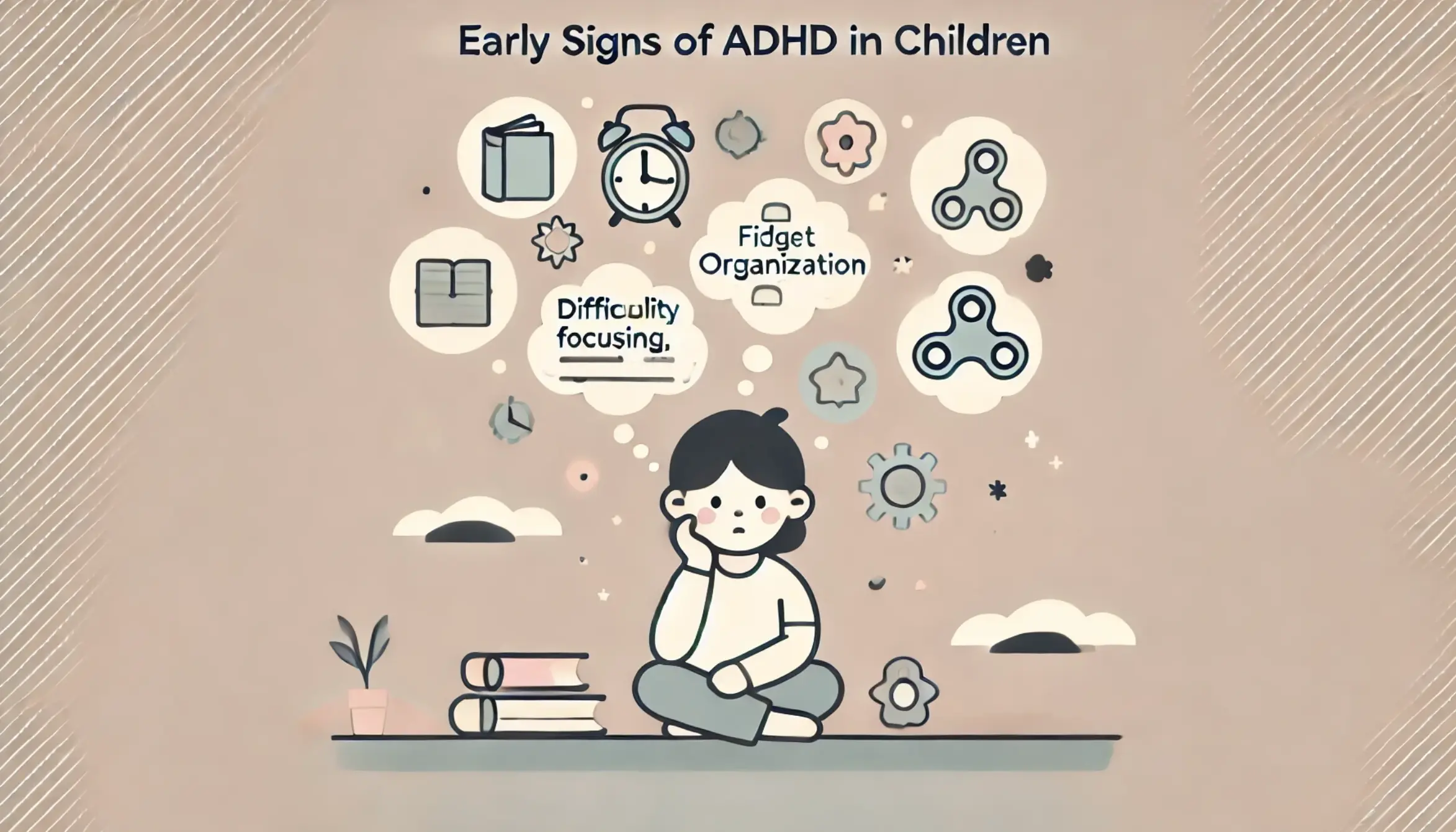Trauma can leave significantly deep emotional scars that affect every aspect of a person’s life, often manifesting as post-traumatic stress disorder. Yet, understanding the intricacies of PTSD and trauma is no simple task. This blog explores a crucial aspect of the healing process: PTSD evaluation!
In this article, we delve into the psychological assessments for PTSD and trauma, shedding light on how common PTSD is, what causes PTSD, and what you can expect if you or a loved one is undergoing one.
These psychological evaluations serve as a compass, guiding individuals toward tailored treatment plans, healing, and recovery. Whether you’re seeking help or simply interested in the psychology behind trauma, this exploration will provide valuable insights into a vital step to healing.
What Is Post-traumatic Stress Disorder?

People who have been involved in or witnessed a traumatic event can develop post-traumatic stress disorder, a mental health condition. These events can be anything from combat in war zones to natural disasters, accidents, or personal assaults.
PTSD manifests as a complex interplay of symptoms that typically emerge after the traumatic incident, although they may not appear immediately.
Common symptoms of PTSD include intrusive thoughts or flashbacks related to the trauma, intense emotional distress, nightmares, and a heightened state of arousal marked by hypervigilance or irritability. Another common reaction is avoidance, such as eliminating things that remind one of their trauma.
PTSD can significantly impair one’s daily life, relationships, and overall well-being if left untreated. Fortunately, various evidence-based therapies, evaluations for PTSD, and medications can help manage the symptoms and aid recovery.
Seeking professional help is crucial for those struggling with PTSD, as early intervention can improve outcomes and help individuals regain control of their lives. It’s essential to recognize that PTSD is a treatable condition. With the right support, individuals can move toward healing and recovery.
How Common Is PTSD?

PTSD is a widespread mental health condition affecting individuals across various demographics and backgrounds. While the prevalence rates may vary, it is a significant concern worldwide.
PTSD is not limited to specific groups or age ranges. It can emerge in survivors of war, violence, accidents, abuse, natural disasters, and other traumatic incidents. In addition to the immediate impact on mental well-being, PTSD can lead to long-term consequences, affecting daily functioning, relationships, and overall life quality.
Efforts to raise awareness about PTSD, reduce stigma, and expand access to mental health support have been crucial in addressing this common condition.
Early intervention and effectual treatment can significantly improve the prognosis for individuals grappling with PTSD, underscoring the importance of recognizing its prevalence and providing appropriate care and resources.
Are Some People More Likely to Develop PTSD Than Others?
Certain factors can make some individuals more prone to developing post-traumatic stress disorder than others. While anyone exposed to a traumatic event can potentially develop PTSD, several risk factors increase the likelihood of its occurrence.
- Nature of Trauma: The type and severity of the traumatic event play a significant role. Events involving physical harm, sexual assault, or life-threatening circumstances are more likely to lead to PTSD.
- Personal Resilience: Individuals with strong coping skills, emotional resilience, and a robust support system may be less vulnerable to PTSD. A history of past trauma or mental health issues can increase the risk.
- Biological Factors: Genetics and neurobiological factors can influence susceptibility to PTSD. Some people may have a genetic predisposition that makes them more vulnerable to developing the disorder.
- Social Support: Adequate social support can serve as a protective factor. Having a strong support network of friends and family can help mitigate the impact of trauma.
- Timeliness of Intervention: Receiving prompt intervention and support after a devastating event can reduce the likelihood of developing PTSD. Early mental health care access from trauma psychologists and evidence-based treatments can make a significant difference.
What Causes PTSD?
PTSD is primarily caused by exposure to traumatic events that overwhelm an individual’s ability to cope and process the experience effectively. While these factors contribute to the development of PTSD, it’s important to note that not everyone exposed to trauma will develop the disorder.
In addition, PTSD is a complex condition, and its exact causes and risk factors can vary from person to person. Early intervention and appropriate ptsd psych evaluation are crucial in helping individuals recover from PTSD and manage its symptoms.
The specific causes of PTSD can vary, but they typically involve the following elements:
- Traumatic Events: PTSD often stems from direct or indirect exposure to traumatic incidents. These include combat experiences, physical or sexual assault, natural disasters, accidents, serious injuries, or witnessing violence.
- Perceived Threat to Life or Safety: The severity of the trauma often relates to how directly an individual perceives a threat to their life or physical well-being during the event.
- Lack of Control: Feelings of helplessness or powerlessness during the traumatic event can contribute to the development of PTSD.
- Personal Vulnerabilities: Pre-existing factors such as genetics, brain chemistry, personality traits, and prior exposure to trauma can influence an individual’s susceptibility to PTSD.
- Lack of Social Support: A lack of a supportive social network or limited access to mental health resources can make it more challenging for individuals to cope with the aftermath of a traumatic event.
What Are the Symptoms of PTSD?
The symptoms of PTSD can have a serious negative effect on a person’s mental and emotional health. These symptoms can range in duration and severity, and they can significantly negatively influence daily functioning, interpersonal connections, and general well-being.
It’s essential for individuals experiencing these symptoms to seek professional help from PTSD psychologists. PTSD is a treatable condition, and various therapeutic approaches, including cognitive-behavioral therapy and medication, can help manage and alleviate its effects.
These symptoms are generally categorized into four clusters:
- Intrusive Symptoms: People with PTSD often experience intrusive, distressing thoughts, memories, or flashbacks related to the traumatic event. These can occur suddenly and are difficult to control.
- Avoidance and Numbing: Individuals with PTSD may go to considerable efforts to avoid reminders of the trauma, including places, people, or activities associated with it. They may also exhibit emotional numbness, detachment, or an inability to experience positive emotions.
- Negative Changes in Mood and Cognition: Post-traumatic stress disorder can lead to persistent negative thoughts about oneself or others, distorted blame, feelings of guilt or shame, and an overall negative outlook on life. Memory problems and difficulty concentrating are also common.
- Arousal and Reactivity: Hyperarousal is a hallmark of PTSD, leading to heightened irritability, anger outbursts, insomnia, exaggerated startle response, and a constant sense of being on edge.
How Does PTSD Affect Your Life?

Post-traumatic stress disorder (PTSD) can have a profound and lasting impact on one’s life. This disorder is typically triggered by encountering or witnessing a traumatic event, such as combat, assault, accident, or natural disaster. The effects of PTSD extend far beyond the initial trauma, infiltrating various aspects of daily life.
Firstly, PTSD can lead to debilitating anxiety and intrusive thoughts, making concentrating difficult and causing sleep disturbances. Individuals with PTSD often avoid situations, people, or places that remind them of the devastating event, leading to social isolation and strained relationships. Flashbacks and nightmares can also retraumatize, intensifying the emotional toll.
Physically, PTSD can manifest as increased stress levels, contributing to various health issues. It can impair one’s ability to hold down a job, affecting financial stability and hindering career advancement. For those with PTSD, substance abuse is a common coping mechanism, typically exacerbating the problem.
How Is PTSD Diagnosed?
PTSD diagnosis is a complex process typically conducted by mental health professionals, with psychologists playing a crucial role in this assessment. Diagnosis of PTSD entails thoroughly assessing a person’s mental and emotional state, with a focus on particular criteria defined in the Diagnostic and Statistical Manual of Mental Disorders (DSM-5).
Psychologists specializing in trauma and other mental health experts use various methods for diagnosis, including clinical interviews and psychological assessments. They’ll inquire about the individual’s history, experiences, and symptoms, paying close attention to the presence of trauma-related symptoms like flashbacks, nightmares, emotional numbness, and hyperarousal.
In addition, PTSD psychologists may use standardized assessment tools to quantify and assess the severity of PTSD symptoms. These assessments help confirm the diagnosis and establish a baseline for treatment planning.
It’s important to note that diagnosis is not a one-size-fits-all process, as the presentation of PTSD can vary widely among individuals. A comprehensive evaluation by a skilled mental health expert is essential for accurate diagnosis and developing an effective treatment plan customized to the individual’s needs.
PTSD Psychologist Near Me? Contact APS Today!
PTSD is a challenging condition that can disrupt various aspects of life. However, there is hope through timely intervention and treatment. If you or someone you know in the SF Bay Area is struggling with PTSD, don’t hesitate to seek help. At Ability Psychological Services, we offer psychological evaluations for PTSD to provide tailored support and guidance on recovery. Take the first step toward healing, and contact us today for professional assistance in managing PTSD. Your well-being matters!





